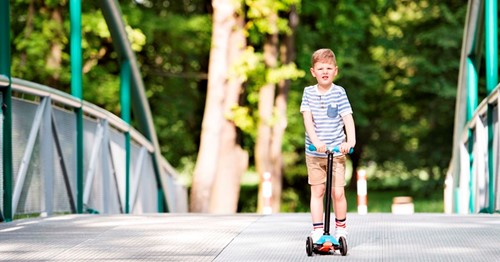QUESTION: I’m a parent of two young boys and would like some tips on helping them cope with making mistakes. I see other parents with great intentions trying to fix their children’s problems but I’m not sure that telling my children everything will be okay will teach them about life’s disappointments. How do I support my children to build their determination and resilience?
ANSWER:
 As parents, it is natural to want to protect our children from disappointments and unpleasant situations. It can be difficult to see our children upset and our instinct is often to fix problems for them.
As parents, it is natural to want to protect our children from disappointments and unpleasant situations. It can be difficult to see our children upset and our instinct is often to fix problems for them.
But you do raise an important point in that life is full of disappointments. How we choose to deal with those disappointments can often be a reflection of our past experiences with failure including what we were taught about failure as a child. We all want to succeed and ‘win’ in life – however, think about the most successful adults you know. Successful adults have had their fair share of disappointments and difficult times; times which have created opportunities for learning, growth and success in life.
Teaching our children to accept and deal with failure has many benefits, with the main one being a well rounded, resilient child and future adult. Additionally, through failure, children will learn social and emotional skills, confidence to try again when they experience a setback, different ways of solving problems and the ability to see things from someone else’s perspective.
Here are some tips to find ‘teaching moments’ with your children.
- When your child achieves something, even something small s/he may have been struggling with, praise their effort. Praise them for their persistence and the fact that they are trying. Let them know you are proud of them for taking a small step, even if it doesn’t work out exactly as they had hoped.
- Encourage your children to practise skills. This does require patience, especially when your children become upset and want to give up. My son really struggled to become confident riding his scooter. After many tears, patience, his throwing the scooter to the ground in anger, and encouragement, he is finally riding his scooter with confidence. Did I stress the part about patience? And staying calm as well because you’ll certainly be challenged in this respect.
- When you do praise your child’s successes, be careful not to link that success to how much you love them. Make sure your children know you love them regardless of how they perform at a task.
- Model positive reactions to your own mistakes and failures. Pick something you feel comfortable in sharing with them and be honest about how you felt at the time, what you did to improve the situation and perhaps what you learned that would be helpful for the future. Expressing negative emotions is normal and healthy and it is important that children see what you choose to do with negative emotions that have arisen due to failure and disappointment.
- When your children make a mistake, or something goes wrong, instead of giving them the answers, ask them a few questions to get them thinking. For example, “How do you think your friend feels?” “Why do you think he feels that way?” “What can you do to make things better?” “Do you think you might do something differently next time?” Encouraging your children to reflect on a situation can be time consuming, but reflection can provide opportunities for learning new skills.